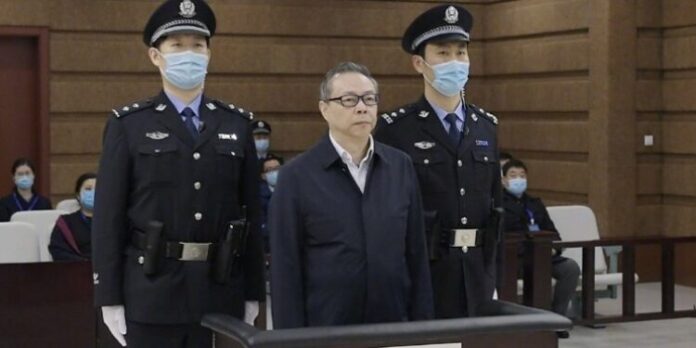China has executed Li Jianping, a former official from Inner Mongolia, for embezzling over $421 million in the country’s largest-ever corruption case.
The execution took place on Tuesday, following approval from China’s Supreme People’s Court.
Li, who was once the secretary of the Communist Party’s working committee for the Hohhot Economic and Technological Development Zone, was convicted of stealing three billion yuan, a sum that makes this case the largest of its kind in Chinese history.
The 64-year-old former official had been sentenced to death in September 2022. His sentence was upheld on appeal in August 2024.
Following this, the execution was carried out by a court in Inner Mongolia, as confirmed by the state-run Xinhua news agency.
Li’s case has sent shockwaves through China’s political circles, highlighting the severity of the country’s ongoing crackdown on corruption.
Li’s crime involved illegal gains amounting to over $421 million. This staggering sum has drawn international attention, casting a spotlight on China’s high-profile anti-corruption campaign.
Since President Xi Jinping took office in 2012, fighting corruption has become a central theme of his governance.
His administration has vowed to root out corruption at all levels of the government, from low-ranking officials to high-ranking elites.
Xi’s anti-corruption drive, known for its far-reaching impact, has already led to the punishment of over one million government officials.
This includes prominent figures, such as two former defence ministers and dozens of military personnel, as well as local and national party officials.
Despite these efforts, the number of high-ranking officials punished for corruption continues to rise. In 2023, the Central Commission for Discipline Inspection (CCDI) investigated 45 “tigers” – a term used to describe senior cadres caught up in the corruption probe.
This year, that number has already surpassed 50, with 54 senior officials facing investigation so far.
“Corruption is a cancer that must be eradicated from the roots. It destroys the party, the country, and the future,” President Xi Jinping said in a statement when the crackdown was first launched.
The public response to Li’s execution has been mixed. Some see it as a necessary step in the fight against corruption, a critical issue for the country’s leadership.
“The punishment for such a serious crime must be severe,” said Zhang Wei, a Beijing resident. “It sets a clear example to others in power.”
However, others have raised concerns about the human cost of such a harsh approach to justice.
“What happened to Li is a reminder of the absolute power of the state. No one is truly safe, not even the high-ranking officials,” said Li Ming, a former government employee.
The broader implications of Li’s execution are significant for China’s political landscape.
Xi Jinping’s anti-corruption campaign has been credited with consolidating his grip on power. It has allowed him to remove rivals within the Communist Party, securing his leadership position.
However, the campaign has also faced criticisms for its lack of transparency and potential for political maneuvering.
Many argue that the crackdown could be used as a tool to target political enemies, under the guise of rooting out corruption.
Li Jianping’s case has also sparked questions about the effectiveness of the anti-corruption efforts. Despite the large number of officials being investigated, corruption remains a persistent issue.
While the Chinese government insists that the campaign has improved governance, critics argue that it has yet to create a truly transparent and accountable system.
In the past decade, China has witnessed an increase in reports of corruption scandals, both at local and national levels.
These scandals have often involved massive sums of money, showing that the country’s anti-corruption measures may not have entirely eliminated the problem.

